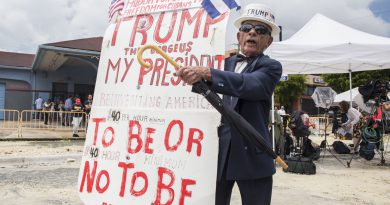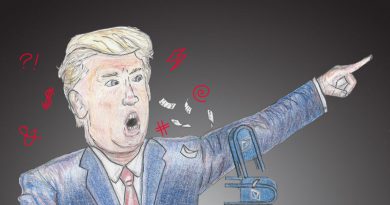What The Election Taught Me About Grief
I had warned myself to not watch the election results, but on Nov. 8, I did the opposite. It would be the end of the verbal debauchery and ruthless attacks that had exposed the deep divide of the country. It didn’t help that Donald Trump added fuel to the already burning fire, attacking almost every kind of person imaginable from Muslims to the physically disabled. Friends of mine had expressed confidence that Hillary Clinton would win, despite the predictions.
However, there was a deep-seated fear that foresaw Trump’s victory. That was confirmed, as an angry shade of red swept across the digital maps from all of the major news networks. When Florida went to him, I certainly knew he had won the presidency.
Psychiatrist Elisabeth Kübler-Ross is famous for her study on grief. Her work with terminally ill patients and their families influenced her book On Death and Dying. It offered the well-known outline of the five stages of grief—denial, anger, bargaining, depression and acceptance. In the morning after the election results I woke up in a haze of denial and disbelief. Hours later, I listened to my best friend desperately cry over the phone which caused me to cry as well. I thought about my LGBTQI+ friends and a few others who I know are undocumented immigrants and what this would mean for them.
Anger welled up as I witnessed Trump supporters on television cheering, wanting to scream, “This is not what my nation stands for!” I bargained that maybe it would be a four year presidency. Then, I fell into the rabbit hole of depression.
During that mourning process, I was reminded of another grief. The one that I was in the most denial about. I began to follow a blog of a brave young man who battled cancer. I sent him an email, offering my unconditional support. Over the next several months, we had sporadic contact via Facebook, email and live chat. When he died, I struggled with the question of whether or not I had that right to grieve his death, given that we never physically met each other. I questioned my feelings, stuck in the denial stage for years.
Which brings me back to the election. When my best friend cried with me on the phone, I found validation of my emotions. Over the next several days, I found that same validation with people who expressed their own grief over the results. It was during that time that I opened up about my friend’s death to another friend. He offered the gift of validation, acknowledging my sorrow and lending his support.
It would appear that I have reached the final stage of grief. The truth is that acceptance is hard to come by. I have learned during the election season how people can be driven apart by venomous hatred. But also how people can be united, even under the weight of grief.




